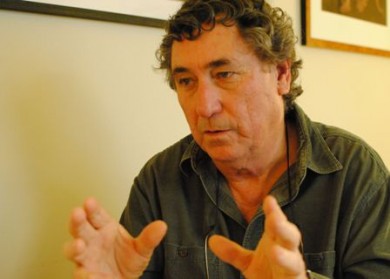Tag: David Fanning
“If you can’t make it important, it’s probably not worth doing”
In an extended interview with Current, Frontline creator David Fanning recalls how he came to work at Boston’s WGBH more than three decades ago, ...Michael Sullivan, Frontline producer since 1987, departs icon investigative series
Michael Sullivan, a television producer whose name has run near the top of credit rolls of Frontline almost continuously since 1987, has exited the ...Fanning quotes Friendly: public TV’s greatest right is to ‘rock the boat’ with journalism
In 2011, as partisan critics attacked NPR, Frontline chief David Fanning urged public media to specialize in strong journalism. Fanning, who was accepting ...Frontline’s producer on pledge shows and online ads
... This is our deepest embarrassment as public broadcasters. I have heard the arguments, and I understand the imperatives, but to think ...Ralph Lowell Medal and others, May 2010
The primary figures in the histories of the PBS series Frontline and Sesame Street were saluted by PBS CPB Ralph Lowell Medal: Frontline auteur David Fanning received ...Cooney, Fanning honored in Austin
Children’s television pioneer and Sesame Street creator Joan Ganz Cooney is the recipient of this year’s Be More Award from PBS. She accepted her ...Online collaboration: TV, radio have sitdowns
PBS will go public Wednesday with discussion of its News & Public Affairs Initiative — an ongoing study that’s weighing options for ...



